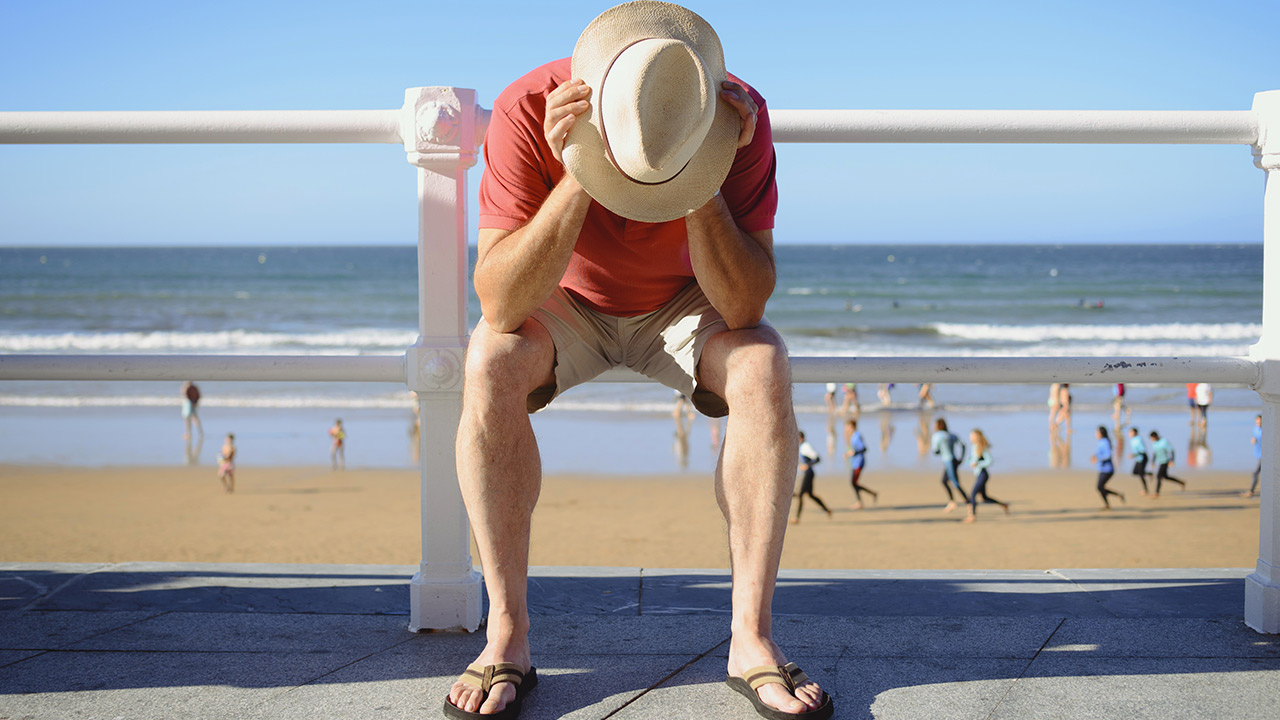Why millions of Aussies are delaying, modifying or scrapping their travel plans

While it might seem like everyone around you is enjoying a luxurious European summer vacation, recent data reveals that the majority of Australians are facing obstacles in pursuing their travel dreams. The rising cost of living and inflated travel prices are compelling millions of Australians to reconsider and adjust their holiday plans, according to the latest consumer sentiment survey conducted by NAB, which involved approximately 2,000 local respondents.
According to an alarming piece by SBS, the survey found that nearly two-thirds of Australians (65 per cent) who had intentions of traveling in the next 12 months have been forced to either cancel or postpone their trips. Among them, 24 per cent decided to scrap their plans entirely, while 42 per cent opted to delay their vacations. The data shows that an overwhelming number of individuals believe that travel and holidays have become considerably more expensive.
According to the SBS piece, Tara Hartley, NAB's retail customer executive, offered some reassurance to those experiencing FOMO (Fear of Missing Out) on extravagant European holidays. She stated that many Australians are making prudent spending decisions, prioritising their expenses based on what they value most. With the cost of living rising, including grocery bills and fuel prices, Australians are finding it increasingly challenging to budget for their holiday plans. As a result, they are making thoughtful adjustments to their spending habits.
Approximately 40 per cent of respondents have scaled back their travel plans, opting to explore domestic destinations instead of traveling abroad to save money. Hartley mentioned examples like people swapping trips to the Mediterranean for Maroochydore or Bali for Burnie, indicating that Australians are finding joy and relaxation within their own country.
One significant factor contributing to the hesitance in making travel arrangements is the soaring cost of airfares. Airlines have been slow to resume normal operations after the COVID-19 pandemic caused international flights to come to a halt. The combination of increased demand for flights, inflation, rising fuel prices, and a shortage of staff has led to a surge in airfare costs.
Data released by online travel company Kayak in May indicated that return flights from Australia to overseas destinations are now over 50 per cent higher than pre-pandemic levels. For instance, the average return economy international flight between July and December currently costs $1,827, compared to $1,213 in 2019. Domestic flights have also experienced a notable increase, with costs up by 10 per cent compared to 2019 figures and 15 per cent higher than last year.
Even though capacity is expected to return to the airline industry, outgoing Qantas chief executive Alan Joyce cautioned that airfares might not return to their pre-pandemic affordability. Nevertheless, the adjustments in travel plans have had some positive financial impacts. On average, Australians have saved around $392 each month by changing their travel plans. Over the course of a year, these adjustments have translated to approximately $4,704 in savings.
The rising cost of living and inflated travel prices are causing millions of Australians to reconsider their holiday plans. With airfares surging and travel becoming more expensive, many are opting to modify their trips or explore domestic destinations instead. While these changes may bring financial benefits, it remains uncertain when airfares will return to their pre-pandemic levels.
Image: Shutterstock
